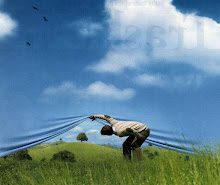\PAHRS\, transitive verb:
1. To resolve (as a sentence) into its component parts of speech with an explanation of the form, function, and syntactical relationship of each part.
2. To describe grammatically by stating its part of speech, form, and syntactical relationships in a sentence.
3. To examine closely or analyze critically, especially by breaking up into components.
4. To make sense of; to comprehend.
5. (Computer Science) To analyze or separate (input, for example) into more easily processed components.
intransitive verb:
1. To admit of being parsed.
~~~~~~~
Society can be conducive to creativity or suppressive of it. Certainly freedom (from conventions, prescriptions, unnecessary traditions/predilections) is at its peak without society, but the benefits of mutual inspiration gleaned from having many humans instead of a few are more than enough evidence to claim a social environment more fulfilling. Therefore, society has the ability, through sheer abundance of people, to provide meaningful connections, illuminating epiphanies, and all-around inspiration from any possible sentient outlet. So why’s it so often suppressive?
We all heard Marx in class, so I won’t reiterate too much, but those alienation principles ring very profoundly, I think. Especially felt in our own, more capitalist society, there is a noticeable, constructed tendency toward looking forward to a more fulfilling life, be it after high school, after college, in the summer, on vacation or on the weekends. This is not constructed by a society wishing to profit off of us alone—it also takes advantage of a natural human penchant for being auspicious about what might come next. It’s natural to dream.
It’s also natural to believe that if we want something, we have to work for it. Elaborated, embellished, and combined with the above principles, this becomes the very ethic driving the work force into unfulfilling jobs and lives. An engaged and manipulated human penchant for hope.
Perhaps it’s in part due to the goals in our minds. Upon reaching this next tier, I will be happier. If I give up a little more happiness now, I will be happier later. These things are certainly not always false, but the problem with them is that they’re most often prescribed by outside influences. The difficulty with the affair of hope, perhaps, can be divided in two. One, in being quixotic without an appropriate, realistic (critical/skeptical) referent. The other, having our tiers of proposed happiness set by anyone but ourselves.
A human peculiarity is to be in control of his/her condition. Removing ourselves from nature and evolution occurred, whereupon we considered our instincts and situations and chose to act in such a matter that would delegate us more benefits than would natural selection. This alienates us, first, from nature. Then, upon the construction of societies, two extremes come into view, with neither being entirely embodied, but rather, each society leaning toward one or the other: a society in which personal fulfillment is valued, and a society in which personal fulfillment is sacrificed in the hope of its ascertainment. Put like that (and perhaps I am putting it wrong) the sound choice is clear.
“Imagination will often carry us to worlds that never were. But without it we go nowhere.” --Carl Sagan
But we should not cease to hope. Instead, we can cease to rely on our imaginations to form various


1 comment:
The effect of the community resounds deep in marxist thought. I round out the above statement with the knowledge of participatory events in my own life. I have successfully travelled around the country in search of this Marx type thought carried out. It does exist to the effect that people do carry work out to be something with no time constituents, and not surrounded by what we call "Babylon" or the concrete world of civilization. These people that I saw had strived inside nature, and used what they found in the way of natural items, to construct their homes, stores(which functioned on donation) and restaurants.
As far as the donations were considered props for the organization, which used the art of people to win endowments.
I think that people in this time need the building up of society in the form of more contractual labor, and funding from larger philanthropic organizations, and that would null out negative contractions like the warrring of domestic issues against privatized or global warrants.
Post a Comment